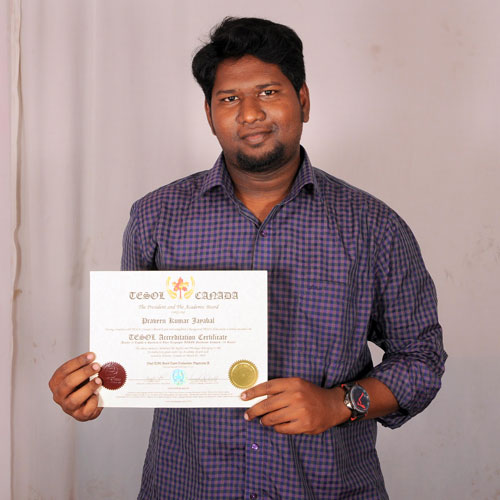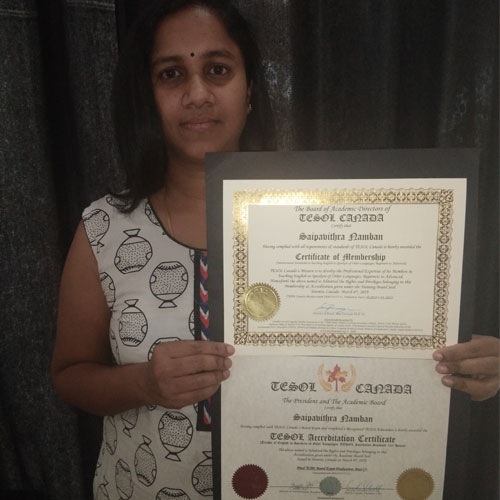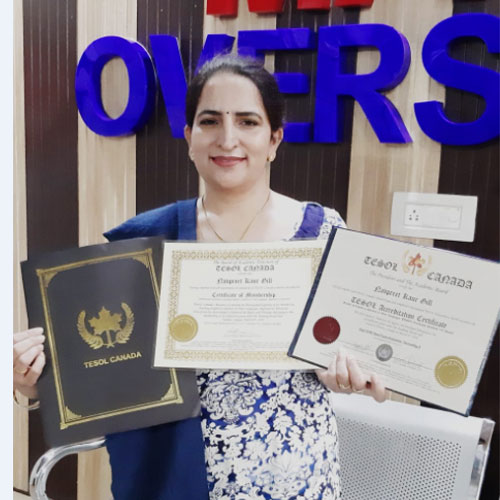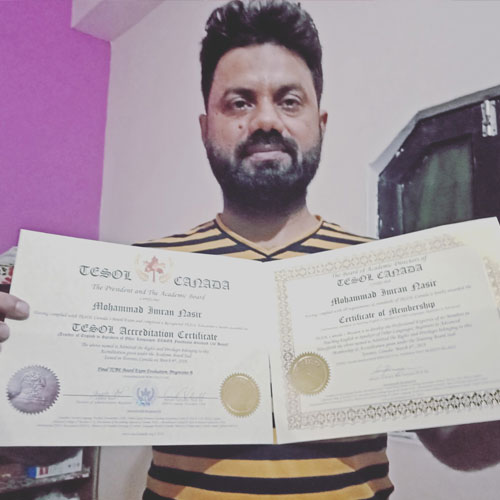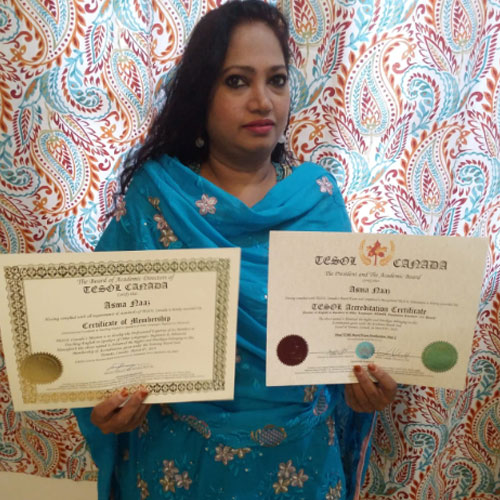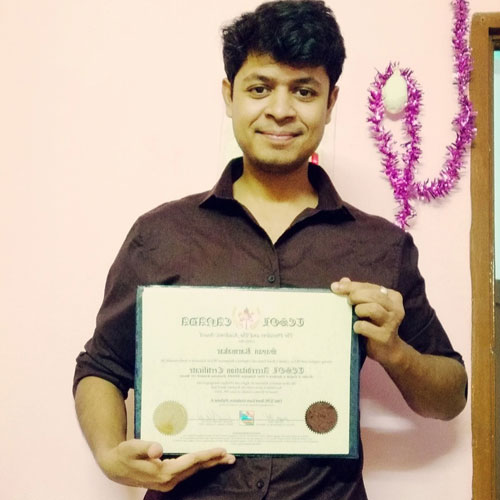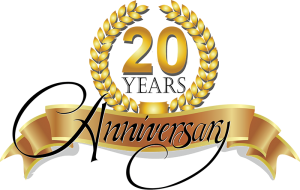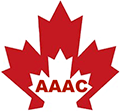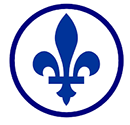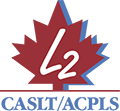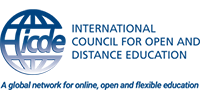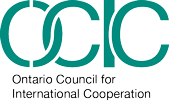Introduction
 TESOL P G Diploma program requires the candidate to complete the TESOL Foundation course, followed by the Diploma program comprising of specialization courses, completing the PG Diploma level with a dissertation. Whether you are a fresh university graduate, aspiring to step into the world of teaching English or you are already an accomplished teacher with experience, you can easily enrol with us for our TESOL P G Diploma program and pursue the course.
TESOL P G Diploma program requires the candidate to complete the TESOL Foundation course, followed by the Diploma program comprising of specialization courses, completing the PG Diploma level with a dissertation. Whether you are a fresh university graduate, aspiring to step into the world of teaching English or you are already an accomplished teacher with experience, you can easily enrol with us for our TESOL P G Diploma program and pursue the course.
- TESOL provides opportunities to travel, work and make a difference in others’ lives
- Online TESOL Canada webinars and courses upgrade teachers
- It aims to improve teaching skills, teachers' ethics and learning outcomes for all students
- TTESOL P G Diploma covers teaching to adults, teenagers, children, business and academic sectors.
- The TESOL Diploma course comprises of both theory and practicum*
- User friendly LMS and great support by the academic team
- Opportunity to appear for the coveted TCBE and earn the certificate
*Exempted for Experienced Teachers
Overview
Aspirants enrolled in the P G Diploma program need to study for 600 hours which covers theories on teaching techniques (Language Skills) which includes the four major ways of communication; Classroom Management covering disaster management; lesson planning, teaching children where you will be taught on the difference between teaching adults and children and a research paper. There will also be two specializations in this program:
1. Teaching English to Children (TEC) - Curriculum focusing on teaching young learners. This comprises of topics on Language learning and language acquisition, Teaching Listening focussing on listening activities to ways to handle mixed groups, classroom materials, Evaluation techniques followed by assignments.
2. Teaching Business English (TBE) - Curriculum focusing on introduction to Business English, Need Analysis, Course Designing touching upon the Client Approach, Feedback and Evaluation, Classroom Management, Teaching Business Speaking and Writing.
TESOL P G Diploma - Curriculum
Duration – 600 hours
Phase 1 - Introduction to TESOL
Language Acquisition
- Second Language Acquisition
- Acquisition Vs Learning
EFL teaching
- Methodologies and Approaches
Learners
- Language Learners and their levels
Phase 2 - The Study of English
Grammar
- The structures
- Contextualizing Grammar
Phonology
- Segmental
- Supra-segmental
Teaching Vocabulary
Phase 3 - Teaching Techniques (Language Skills)
Part I
- Teaching speaking
- Teaching Listening
- Teaching reading
- Teaching writing
Part II
- Context and Language Modelling
- Communicative ways
Phase 4 - Classroom Management
- The components
- Disaster Management
- Mixed and large groups
Phase 5 - Lesson Planning
- Guidelines
- Format
- Samples
Phase 6 - Need Based Language Teaching
- EAP
- ESP
- Business Communication
Phase 7 - Teaching Young Learners
- Difference between Adults and YL
- Difference between Adults and YL
- Songs, Rhymes, Stories and games
Phase 8 - Text Books and Materials
- Evaluating Text books
- Types and use of Materials
Phase 9 - Research and Self Study
Young Learners Teachers Training Curriculum
Phase 1: Language learning and language acquisition
- The Hypothesis
- The Difference between learning and acquisition
- Assignment
How do children learn English?
- Practical approaches to teaching children
- The levels
- Language Development and context
- Assignment
Phase 2: Teaching Listening
- The importance of listening in the classroom
- Listening activities
- Self - Assignment
Teaching Speaking
- Speaking in the classroom
- Student talk
- Introducing language
- Activities
- Self - Assignment
Teaching Reading
- Approaches to reading
- Building confidence
- Different Material
- Assignment
Phase 3: How to handle mixed groups
- Mixed groups
- Helpful strategies
- Group work
- Assignment
Class Management
- The teacher
- The room
- Rules
- Working in groups
- Self-Assignment - not to be submitted
Lesson Planning
- The need to plan
- Different ways of planning
- The framework
- When things go wrong
- Assignment
Phase 4: Materials in the classroom
- Things to make
- Things to buy
- Assignment
Stories, games, songs, chants
- How to use stories
- Games - some ideas
- The importance of songs and chants
- Self-Assignments - not to be submitted
Phase 5: Correction techniques
- Look at error differently
- Ways of error correction
- Assignment
Evaluation techniques
- The meaning
- Purpose
- Formative assessment
- The continuous system
- Assignment
The Business English - Professional Skills
Phase I - Introduction to Business English - features and components
- The Learner
- The teaching context
- The trainer
- The language
- Communication techniques
- Communicative Language teaching
Phase II - Need Analysis
- Need analysis - categories and modes
- Decision Making
- Communication needs
- Business needs
Phase III - Course Design
- Setting objectives
- Syllabus components
- Designing
- Implementing
- Setting up the independent on-going learning plan
- Managing the logistics
Phase IV - The Client Approach
- Introduction - Adult, personal and professional
- Present yourself professionally -differing "roles" for the teacher - e.g. coach, consultant facilitator
- Methods of empowering learners
Phase V - Feedback and Evaluation
- Different types
- Assessing the trainees
Phase VI - Classroom Management
- Creating rapport - sensitivity to needs
- Modelling instructions
- Creating interactive activity
- Varying activities
- Being a facilitator
Phase VII - Teaching Business Speaking
- Business communication related to socialization
- Skill practice variants - the different methods
Phase VIII - Teaching Business Writing
- Technicalities of Business Writing
- The basic business writing - types and approaches to training writing
Fees and duration
The TESOL P G Diploma program is an advanced level course and is intended for those looking for a long term TESOL career. If you are planning a TESOL career abroad then this internationally recognised course will provide you the highest standard and prepare you with requisite skills.
The TESOL Canada Diploma program can be completed in 600 hours.
The course can be completed at an affordable fee of 900 USD.
Support
The trainees enrolling in our course can expect complete guidance from our experienced tutors who are committed to helping the trainees to achieve their learning goals. With years of valuable experience the tutors provide great academic support to the trainees and guide them through all the aspects of teaching giving valuable advice in every step of the way. You can reach out to them via email. They share their expertise and relevant information related to the course content to help you with your queries. A lot of emphasis is given on the evaluation process and the tutors will meticulously evaluate your assignments with the much-needed feedback.
Certification
After successfully appearing for the TESOL Canada Board exam (TCBE), candidates will be awarded with an exclusive TESOL Canada certificate that is globally accepted and recognized.
